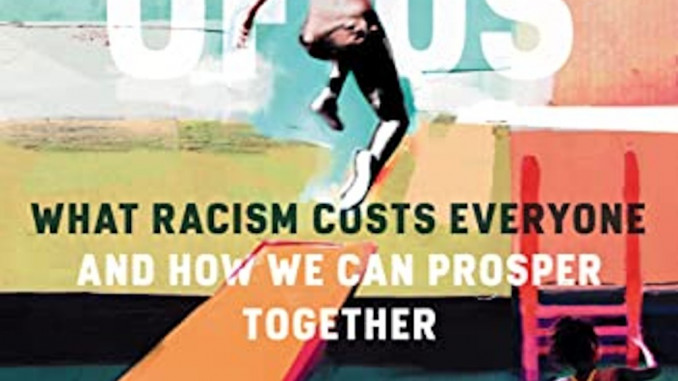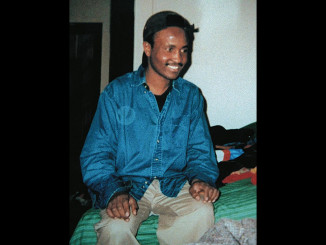
The Sum of Us, by Heather McGee, is an extremely interesting, but frustrating, book on racism in the United States. It is a useful account in under 300 pages of how capitalism has used racism in the U.S. and how it costs everyone – especially the working class. She explores the false understanding promoted among white working people that this is a “zero sum” game: that any gains by people of color are subtracted from the resources of whites. The author fills the book with excellent examples of this perspective, describing tragic losses on both sides. It’s chilling that whites have frequently rejected unionizing because (1) they viewed it as benefitting so-called “lazy” Black workers and; (2) they were loath to join these workers and lose what they saw as the benefits of being white. McGee also shows how whites have repeatedly objected to government benefits programs because they mistakenly believe that people of color will be the main beneficiaries.
Unfortunately, phrases like “how we can all prosper together” and “Solidarity Dividend” make McGee popular among some white liberals. She is edgy but mainstream. She steers clear of mentioning “the working class” or “class” at all. Yet, she makes the point many times that, if it weren’t for the capitalists dividing the working and so-called middle class, whites, Blacks, Latinos, etc., these groups would band together and win important fights for living and working conditions, wages, health care and human rights, and she gives examples of when they have done so. In spite of her avoidance of open anti-capitalist language or politics, she shows time and again how democracy under capitalism thwarts our rights at every turn: regarding voting, housing, homeownership, finance, schools and health care. Many times, her book appeared to suggest that she saw that capitalism needed to be given the heave-ho. Her approach to racism – that it costs ALL of us, not just those who are its direct target – is a useful resource in the struggle toward building class solidarity.
And indeed, solidarity is a word she uses throughout the book, with her final chapter being entitled, “The Solidarity Dividend.”
This is an energizing page turner. Sadly, at the end of the book she runs aground, and leaves us flat when she lists her “Five Discoveries”. She traveled all over the U.S., passionately and tirelessly interviewing workers of all walks and creeds only to leave us with a page of open-ended philosophies: “1) We have no choice but to start aiming for a “Solidarity Dividend”; 2) We have to refill the pool of public goods; 3) One size never fits all; 4) We truly do need each other; and 5) We have to get on the same page before we can turn it.”
After the hard research she did, and the tough talks with all kinds of people, this reader hoped for a much more substantial endgame. Her reporting on the suffering of working-class people of all colors was so unflinching and so empowering that to end with this soft-pedalled, happy talk was very confusing.




